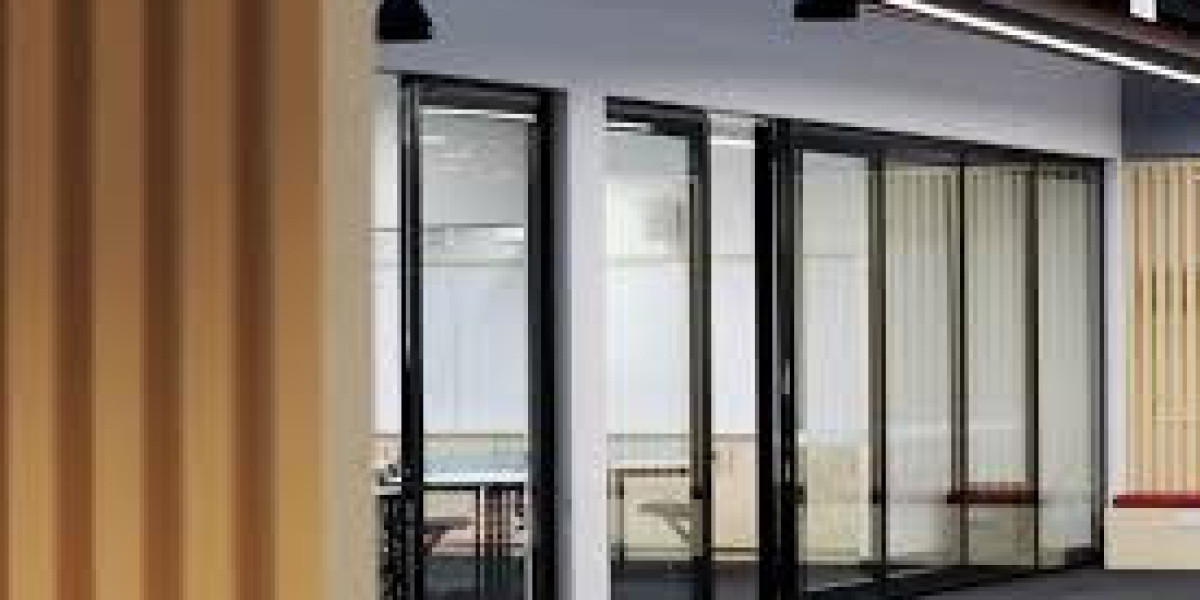As the need for versatile and adaptable spaces grows, operable walls have become a popular solution for many modern buildings. These movable partitions offer several advantages, enabling businesses, schools, conference centers, and other environments to make the most of their spaces. With the ability to create flexible layouts, operable walls are quickly becoming a must-have for spaces where flexibility, privacy, and sound control are priorities.
In this blog, we will explore the benefits and features of operable walls, how they work, and why they are essential for modern spaces.
What are Operable Walls?
Operable walls, often referred to as movable partitions or folding walls, are wall systems that can be moved to divide or reconfigure a room. These walls are typically made of panels that can slide or fold, offering a customizable approach to creating private areas or open spaces. Unlike traditional fixed walls, operable walls can be opened or closed based on the needs of the space.
Operable walls are available in various materials such as wood, glass, and fabric, allowing for a wide range of aesthetic options. They are often used in offices, conference rooms, hotels, classrooms, and other commercial spaces to maximize the utility of the space without the need for permanent walls.
Key Features of Operable Walls
Flexibility in Space Management
One of the most significant benefits of operable walls is the flexibility they offer. In spaces where the configuration needs to change frequently, these walls allow users to quickly adjust the layout. Whether you need to create a large open area for a meeting or break up a room into smaller sections for private discussions, operable walls offer the versatility to meet changing demands. The ability to divide a space into multiple rooms or combine them when necessary helps make the most of the available square footage.Soundproofing Capabilities
Noise control is crucial in many environments, and operable walls are designed to address this issue effectively. Many operable wall systems offer soundproofing properties, helping to minimize noise transmission between rooms. This is especially valuable in conference rooms, offices, or classrooms where privacy and a quiet atmosphere are essential. High-quality operable walls can achieve impressive sound insulation, ensuring that conversations remain private, even in busy or noisy environments.Aesthetic Customization
Operable walls come in various styles and finishes, allowing them to blend seamlessly with the existing décor of a space. Whether you prefer a sleek, modern look with glass panels or a more traditional design with wood finishes, operable walls can be tailored to suit any design preference. This customization allows businesses to maintain their aesthetic appeal while adding functional partitions to their spaces.Space Efficiency
With space at a premium in modern buildings, particularly in urban environments, operable walls help maximize the use of available square footage. Rather than using fixed walls that take up permanent space, operable walls can be adjusted to suit the situation. This makes them an excellent choice for environments where flexibility is required but where space constraints may limit the use of permanent partitions.Easy Operation
Operable walls are designed for ease of use. Most systems are equipped with simple mechanisms for opening, closing, and locking the panels into place. Whether operated manually or with motorized assistance, the process is quick and efficient, allowing spaces to be reconfigured in moments. This ease of operation makes operable walls an ideal choice for busy environments where frequent adjustments are necessary.Durability and Maintenance
Built to withstand frequent use, operable walls are made from high-quality materials that offer long-term durability. These systems are designed to maintain their functionality and appearance over time, even with regular movement and reconfiguration. Moreover, operable walls require minimal maintenance, making them a cost-effective choice for businesses and organizations looking for a long-lasting solution.
Benefits of Installing Operable Walls
Enhanced Space Utilization
By allowing you to divide a room into smaller sections or open it up to its full size, operable walls provide maximum flexibility in how space is used. This ability to adjust the size and function of a room is perfect for businesses and institutions that need to cater to different group sizes or activities. A conference center, for example, can use operable walls to transform a single large hall into several smaller breakout rooms when needed, or revert to one large space for larger events.Improved Privacy and Noise Control
Whether you're managing confidential meetings or trying to minimize distractions, privacy and noise control are key benefits of operable walls. By creating isolated areas that prevent sound leakage, operable walls offer a high level of privacy for sensitive discussions, protecting the integrity of business transactions, meetings, or personal activities.Cost-Effective Solution
While the initial investment in operable walls might be higher than traditional partitions, they can offer significant cost savings in the long run. By eliminating the need for permanent renovations or the construction of additional rooms, operable walls provide a flexible, reconfigurable solution that maximizes the use of space without the cost of building new walls.Adaptability to Changing Needs
In dynamic environments, the ability to adapt to changing needs is essential. Operable walls allow businesses to quickly modify the layout of their space to accommodate new needs, whether it's for different meeting configurations, events, or collaborative workspaces. This adaptability can improve overall productivity and efficiency by creating environments that can be quickly adjusted to meet specific requirements.Aesthetic Appeal and Modern Design
Modern operable walls come in a range of stylish designs that can complement and enhance the look of any space. From glass partitions that offer a contemporary, open feel to elegant wood panels that add warmth and sophistication, operable walls contribute to the aesthetic appeal of a room while providing practical solutions for space division.
Where to Use Operable Walls
Operable walls can be used in a variety of spaces, including:
- Offices: Create flexible workspaces that can be adapted to changing team sizes and project needs.
- Conference Rooms: Divide large rooms into smaller meeting spaces or open them up for larger events.
- Schools and Universities: Create classrooms that can be adjusted based on class sizes and learning environments.
- Hotels and Event Centers: Offer flexible event spaces that can be customized for different functions, such as conferences, weddings, or exhibitions.
- Healthcare Facilities: Provide adaptable spaces that can change based on patient needs or administrative requirements.
Conclusion
Operable walls offer numerous benefits for modern spaces, from providing flexibility in room configuration to enhancing soundproofing and aesthetic appeal. Whether you're designing a new building or upgrading an existing space, these versatile partitions can help you make the most of your square footage, improve privacy, and create an environment that adapts to your needs. With their durability, easy operation, and customizable design, operable walls are a smart investment for businesses, schools, and other institutions that value functionality and style.








